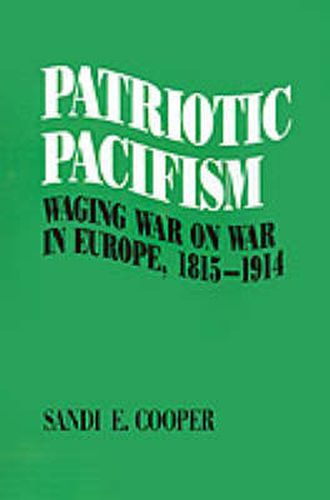Readings Newsletter
Become a Readings Member to make your shopping experience even easier.
Sign in or sign up for free!
You’re not far away from qualifying for FREE standard shipping within Australia
You’ve qualified for FREE standard shipping within Australia
The cart is loading…






Despite the liberalized reconfiguration of civil society and political practice in nineteenth-century Europe, the right to make foreign policy, devise alliances, wage war and negotiate peace remained essentially an executive prerogative. Citizen challenges to the exercise of this power grew slowly. Drawn from the educated middle classes, peace activists maintained that Europe was a single culture despite national animosities; that Europe needed rational inter-state relationships to avoid catastrophe; and that internationalism was the logical outgrowth of the nation-state, not its subversion. In this book, Cooper explores the arguments of these patriotic pacifists with emphasis on the remarkable international peace movement that grew between 1889 and 1914. While the first World War revealed the limitations and dilemmas of patriotic pacifism, the shape, if not substance, of many twentieth-century international institutions was prefigured in nineteenth-century continental pacifism.
$9.00 standard shipping within Australia
FREE standard shipping within Australia for orders over $100.00
Express & International shipping calculated at checkout
Despite the liberalized reconfiguration of civil society and political practice in nineteenth-century Europe, the right to make foreign policy, devise alliances, wage war and negotiate peace remained essentially an executive prerogative. Citizen challenges to the exercise of this power grew slowly. Drawn from the educated middle classes, peace activists maintained that Europe was a single culture despite national animosities; that Europe needed rational inter-state relationships to avoid catastrophe; and that internationalism was the logical outgrowth of the nation-state, not its subversion. In this book, Cooper explores the arguments of these patriotic pacifists with emphasis on the remarkable international peace movement that grew between 1889 and 1914. While the first World War revealed the limitations and dilemmas of patriotic pacifism, the shape, if not substance, of many twentieth-century international institutions was prefigured in nineteenth-century continental pacifism.